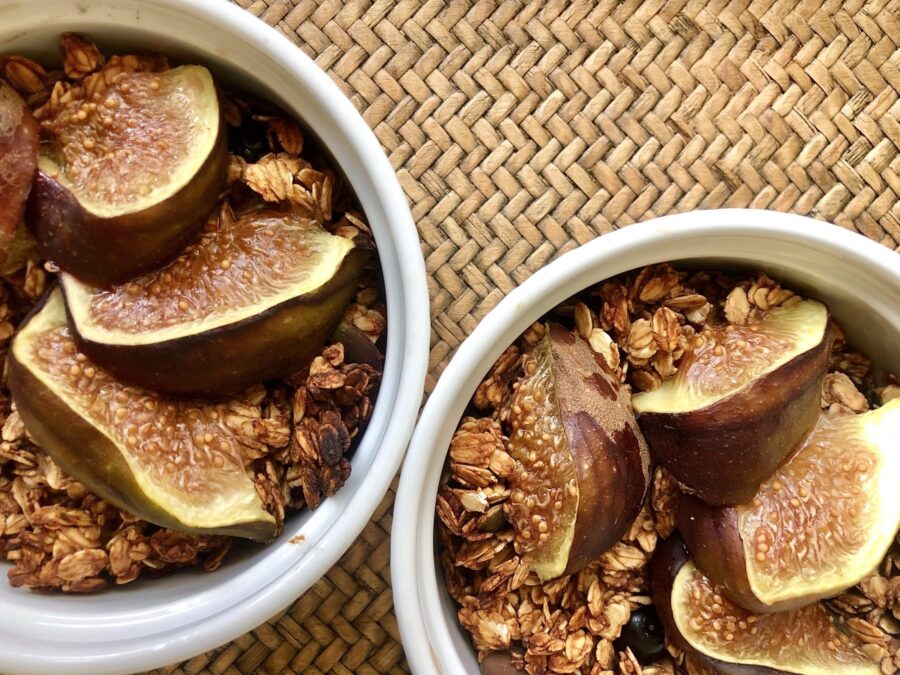Walking into a supermarket and loading your trolley with everything you need to eat and keep your house clean should be relatively worry free right? The only stresses should be trying to find the aisle that houses the special brand of pasta you like or expertly navigating your trolley through a
maze of others. We shouldn’t have to worry about what lines the shop’s shelves. Unfortunately, it’s becoming more apparent that we might have to.
Many of the products that we are loading into our bags for life contain harmful synthetic chemicals that have been linked to cancer or have been proven to disrupt our hormones, lower sperm counts, irritate skin and even be a contributing factor to obesity.
But, we can’t all stop visiting the local supermarket and our need for these products isn’t going to disappear into thin air. So how can we reduce our exposure to chemicals without breaking the bank and without having to dedicate our entire lives to doing so?
Say farewell to fragrance
This is a fairly easy place to begin. Basically, bin (or finish and don’t buy again) all synthetic fragrances – this includes scented candles, reed diffusers, air fresheners and fabric softeners. Making this change could help ease migraines and headaches and will stop you breathing in any
chemical nasties day in and day out. Synthetic fragrances can contain up to 140 different compounds making them tough for our body to process.
If you like to relax and unwind with a gorgeous candle then choose a beeswax option or if you need to rid your home of unwelcome odours then diffuse essential oils.
Quick fix: purchase a small spray bottle and fill it with water. Add two or three drops of an essential oil of your preference (think lemon for freshness, peppermint for some zing or geranium for floral notes) and use this either as a natural perfume or a room spray.
Move from products to produce
Many pre-packaged products that sit in our fridges and cupboards have been exposed to chemicals, especially when they’ve been wrapped in plastics which are known to release chemicals and hormones in particular.
Plus, in a bid to grow money making crops and produce ‘good looking’ fruit and veggies many are sprayed with harmful pesticides. According to the Environmental Working Group, the 5 most sprayed fruit and veggies are strawberries, spinach, nectarines, apples and grapes.
If you have the option shop at your local farmers’ markets, eat whole foods and stay away from anything that has been packaged.
Quick fix: spray harder fruit such as apples and nectarines with vinegar, leave for a couple of minutes and then scrub them clean with a brush. The more delicate fruits and veggies such as raspberries, blueberries and spinach can be sprayed and then rinsed.
Banish products from your bathroom cupboards
So many of our personal care items and skincare products are laced with preservatives, phthalates, paragons and carcinogen sodium lauryl sulphate (which gives shampoo and body wash a lather). Anything with tongue twister names like that can’t be good for us! Other unwelcome guests include triclosan which is found in some toothpaste and has been proven
to upset the balance of our gut microbiome which can lead to colitis and the growth of tumours.
Quick fix: replace your moisturiser with Coconut Oil. Perfect for both face and body it’s fast absorbed, gives natural protection against light sun exposure (you’ll still need a suncream in harsh sunlight) and will give you a gorgeous glow. If you don’t like the smell then add a drop of your
favourite essential oil.
Cook the old fashioned way
Ideally anything that claims to have a non-stick coating should be thrown out the window. At just over 300 degrees celcius (this is the temperature your pan will be after preheating for 5 minutes) Teflon non-stick pans release approximately six toxic gases, including two carcinogens, two global
pollutants, and MFA, a chemical which is lethal to humans at low doses. Cast iron, enamel and stainless steel are far safer to cook with. Also, if possible, store your food in glass rather than plastic and opt for hardwood shopping boards and stainless steel utensils.
Quick fix: baking paper may seem like the non-stick dream but it may be bleached and contain toxins so instead grease your stainless-steel oven trays with butter.
Sparkly clean without the chemicals
This is probably the least surprising section of them all. So many of our cleaning products contain huge concoctions of fake fragrances and chemicals that can upset our PH balances and cause many other health related injuries. Just look what happens if you spill bleach on your brand new jeans – breathing that in surely can’t be good either?
Quick fix: buy a little spray bottle (or use any empties that you have) and create your own cleaning sprays. Fill the bottle with white vinegar, water and essential oils for fragrance. Oils like lemon and eucalyptus will also be naturally antibacterial as well.
Start small
I won’t be offended if you’ve read this blog and you’re ready to walk away and pretend it never existed. All of this information is very overwhelming and we’re never going to be able to eliminate every single harmful chemical from our homes and lives. If you’re anything like me you won’t know
where to start.
I say start small (and make a list!) There are do-able, positive changes you can tick off in no time. Begin by aiming to change one room a month or even just one thing a month – you’ll have the chemicals conquered in no time. The added bonus is that in doing so we will be helping the environment too. It’s a win win.
Side note, in doing the research for this blog I came across Alexx Stuart – her website seems clear and educational and has great tips on how to adopt a more low tox life.
photo credit: Luna Bouwhuis










